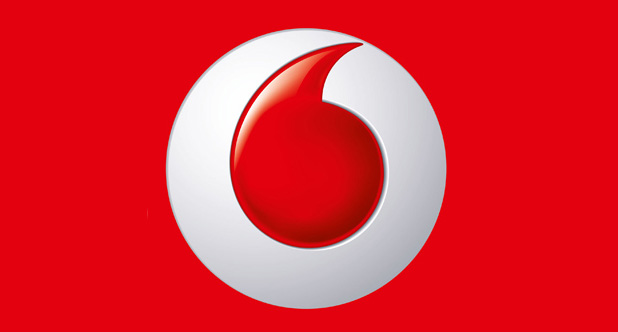

The UK regulator’s concerns about the merger of mobile giant Vodafone and Three UK could be assuaged if certain remedies are implemented.
This is the provisional conclusion of the Competition and Markets Authority (CMA), after it announced on Tuesday that it “provisionally finds Vodafone / Three could address competition concerns through network investment and customer protections.”
It comes after the CMA in September (after an in-depth Phase 2 investigation) had concluded that the “merger could lead to millions of customers having to pay more”, and harm the position of mobile virtual network operators such as Sky Mobile, Lyca, Lebara and iD Mobile.
The regulator said at the time that it would consider responses to its provisional findings, and then issue possible remedies, ahead of its final report due on 7 December 2024.
The CMA has now issued its possible remedies, after the regulator’s independent inquiry group investigating the merger published its Remedies Working Paper.
It said that the “CMA has provisionally found that a multi-billion-pound commitment to upgrade the merged company’s network across the UK, including the roll-out of 5G, combined with short-term customer protections could solve competition concerns identified in September and allow the merger to go ahead.”
The CMA said that its Remedies Working Paper seek views on the effectiveness of a proposed remedy package.
The CMA said it provisionally finds that a legally binding commitment to undertake the network integration and investment programme proposed by Vodafone and Three would significantly improve the quality of the merged company’s mobile network, boosting competition between mobile network operators in the long term and benefiting millions of people who rely on mobile services.
The CMA also found that short term protections would be needed to ensure that retail consumers and mobile virtual network operators can continue to secure good deals during the initial years of network integration and investment roll-out.
The remedies proposed would require Vodafone and Three to:
“We believe this deal has the potential to be pro-competitive for the UK mobile sector if our concerns are addressed,” stated Stuart McIntosh, chair of the inquiry group leading the investigation.
“Our provisional view is that binding commitments combined with short-term protections for consumers and wholesale providers would address our concerns while preserving the benefits of this merger,” said McIntosh.
“A legally binding network commitment would boost competition in the longer term and the additional measures would protect consumers and wholesale customers while the network upgrades are being rolled out,” McIntosh concluded.
The CMA inquiry group is inviting feedback on its announcement by 12 November, before publishing its final report on 7 December.
The CMA’s provisional view on the Vodafone, Three merger was noted by Kester Mann, analyst and Director of Consumer & Connectivity at CCS Insight, who told Silicon UK the positive statement could mark one of the most significant developments in the history of UK mobile industry.
“Vodafone and Three can tentatively order in the champagne as their blockbuster UK joint venture appeared to take another big step forward following a positive statement from the competition watchdog this morning,” said Mann.
“After months of scrutiny, the Competition and Markets Authority (CMA) indicated it is ready to accept the proposed remedies offered by Vodafone and Three to finally allow their planned merger to proceed,” said Mann. “Approval would mark one of the most significant developments in the history of UK mobile, heralding the arrival of a new market leader with over 29 million customers.”
“The watchdog’s statement won’t be welcomed by all,” Mann cautioned. “BT and Sky Mobile have sternly opposed the deal and are likely to vociferously attempt one final time to have it blocked before the CMA’s final deadline in less than five weeks.”
The saga began back in June 2023 when Vodafone UK and the Chinese owner of Three UK (CK Hutchison) had finally agreed the long-touted merger of their respective UK mobile operations.
The merger would combine the companies’ telecommunications operations under one single network provider, for a total of 27 million mobile customers, instantly making the combined entity the biggest mobile operator in the UK.
Vodafone UK would own 51 percent of combined entity, and the merger was been touted as allowing it to present an improved challenge to rival domestic players BT/EE and Virgin Media O2.
But the UK antitrust regulator had concerns.
In January 2024 the CMA began a Phase 1 investigation of the merger which concluded in March, when the regulator warned the merger could lead to mobile customers facing higher prices and reduced quality.
Then in April the CMA began an in-depth Phase 2 investigation, which reached a provisionally conclusion that the Vodafone Three merger “would lead to price increases for tens of millions of mobile customers, or see customers get a reduced service such as smaller data packages in their contracts.”
The CMA had particular concerns that higher bills or reduced services would negatively affect those customers least able to afford mobile services, as well as those who might have to pay more for improvements in network quality they do not value.
The CMA also provisionally found that the merger would negatively impact ‘wholesale’ telecoms customers, which rely on the existing network operators to provide their own mobile services.
Now the CMA has provisionally concluded a much more positive approach, if certain conditions (aka remedies) are met.
Marks & Spencer tells agency staff at central England distribution hub to stay at home…
Portuguese power operator attributes widespread outages across Iberian peninsula to extreme temperature variations
Judge sets 2 May date for Google and US Justice Department hearing to consider remedies…
Spotify reportedly plans price rises across markets outside the US this summer as it seeks…
Nigerian court upholds fine by competition and consumer protection agency over collecting user information without…
Sales and market share of pure EVs regain their edge over plug-in hybrids amidst falling…